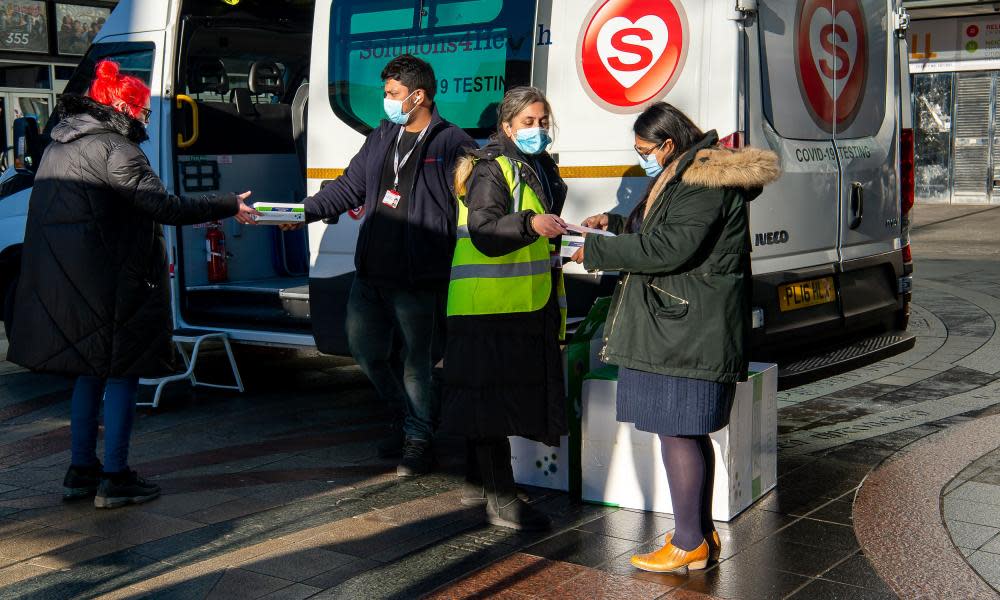Covid cases have hit plateau in parts of UK, says top medical adviser

The number of Covid infections appears to have reached a plateau in parts of the UK, a senior government health adviser has said, with experts expressing optimism about the latest data.
Infections are flattening in London, the south-east and the east of England, while the rise is slowing in the north of England, said Dr Susan Hopkins, the UK Health Security Agency (UKHSA) chief medical adviser.
Case figures remain relatively high, however, with an estimated one in 15 people in England infected, while the figure for Scotland, Wales and Northern Ireland is one in 20.
About one in 10 people in north-west England had Covid-19 last week, according to figures from the Office for National Statistics. London’s rate fell from one in 10 at the end of 2021 to one in 15 in the week ending 6 January.
While hospital admissions have not yet begun to fall, their rate of increase is also slowing down, Hopkins told BBC Radio 4’s Today programme. “We are seeing a slowdown in the number of admissions to hospital, but they are slowing down rather than reversing at the moment, so there are still more than 2,000 admissions to hospital across the UK, and nearly 2,500 yesterday.”
The latest data comes after more than one in six NHS trusts in England declared critical incidents due to Covid pressures, many as a result of staff shortages. Meanwhile, almost 6 million people in England – a record figure – are currently waiting for hospital treatment, NHS figures show.
Hopkins said hospitals had been able to discharge patients more quickly because of Omicron being less severe than previous variants. With about 15,500 people in hospital last week, however, some trusts remain “unable to do much of their elective care”.
Dr Chris Smith, a consultant virologist and lecturer based at Cambridge University, said the latest figures gave him “great cause for optimism”, telling BBC Breakfast: “The number of people who are going into intensive care or are on mechanical ventilation beds is actually dropping.” As 96% of people in the country now have antibodies, the vast majority of people are able to better “fend off” the disease and “we don’t see that strong connection of cases turning into consequences”.
Linda Bauld, a professor of public health at the Edinburgh University and chief social policy adviser to the Scottish government, also expressed cautious optimism. “The cases, if we look at them, are going down by over 20%,” she told BBC Breakfast, adding that Friday was the first day “for a while” that cases in the UK had fallen below 100,000.
Bauld said that “things seem to be moving in the right direction” but warned that hospital numbers remained “very high”.

 Yahoo News
Yahoo News 
